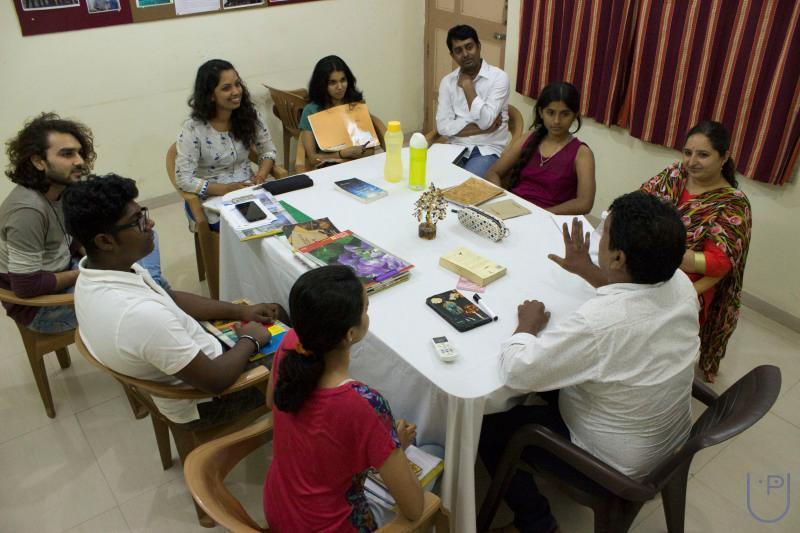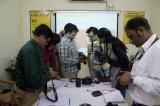As film-buffs we passionately love and fiercely criticize the movies we watch. What we don’t realize is that our taste in cinema is also limited by our understanding of it.
A classical music concert is more enjoyable if you understand the nuances of the genre; a game of cricket more fulfilling if one can read the field set-up and predict the next delivery.
Just as a psychologist’s reading of the human mind, or a chess-player’s strategy in competition are all acquired skills, so is the understanding and appreciation of films.
In this four-day workshop, we will break down the language of cinema in a manner that is understandable to even the most unaware.
What are the different aspects of cinema that come together to form one movie? What are the different components that make cinema such a unique art form?
Workshop Details:
Dates: 15th - 18th October, 2017
Time: 10:00 am to 6:00 pm (variable)
Scope of the workshop:
1. Understanding the medium that is Cinema: Why and how do movies affect us? How is a film different from other media like novels or plays?
2. Understanding how film affects our experience of seeing: How do films modify our sense of space?
3. Understanding how film affects our perception of time and space: How are time and space manipulated in Cinema?
4. Understanding the most understated component of cinema, the sound: How does sound bind everything together and create the illusion of reality?
5. A brief look at history : Understanding American continuity style, Mise-en-scene, Intellectual montage, Realism and Expressionism, French New Wave etc.
6. Understanding the future of cinema: All art forms, be it music, poetry, dance, theatre or even prose, have changed and evolved over the past centuries. But where is cinema heading? What are the 100-year old medium’s aspirations for itself? Who is shaping the future of cinema and how?
Workshop Content:
- Origins of Cinema
Pioneers in the field of Cinema: Lumiere Brothers, Georges Melies, Sergei Eisenstein, Orson Welles et al.
- Introduction to the basic terminology of filmmaking
Mise-en-scene, long takes, deep focus Shots (close up, medium shot, long shot)
- Film Language: Key Concepts
Semiotics in Cinema, Signs and Symbols
- Introduction to the film theories
Sergei Eisenstein, Andre Bazin , auteur theory.
- CASE STUDIES OF CINEMA
1. Battleship Potemkin – Silent Cinema, Soviet Montage
2. Bicycle Thieves: Neo Realism
3. The Godfather: Hollywood Classic
4. Breathless : French New Wave
5. Citizen Kane: American Classic
6. Cinema Paradiso: Italian Classic (Detailed Analysis)
7. Cast Away: American Contemporary (Detailed Analysis)
8. Inception : American Contemporary and as many short films as time permits
DOCUMENTARIES THAT MAY BE SCREENED :
1. Man with the Movie Camera.
2. Triumph of the Will.
3. Samsara and more if time permits.
(List of films is only indicative and may change)
Some surprise screenings can be expected.













